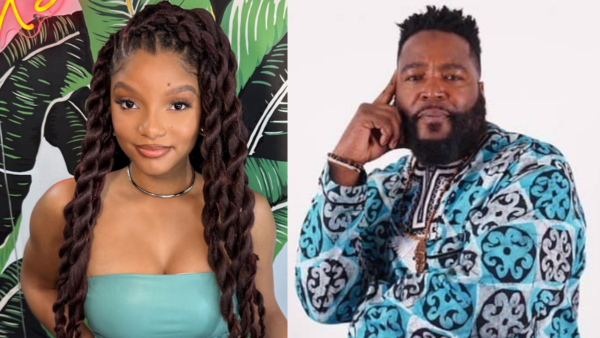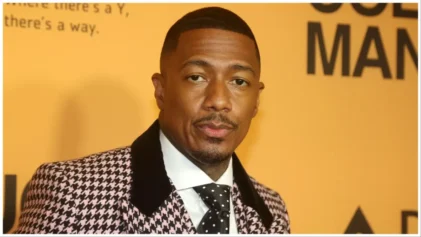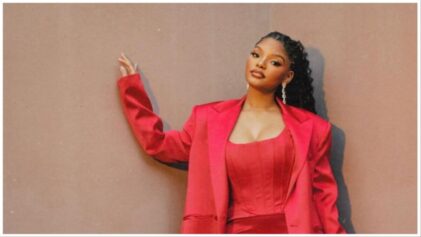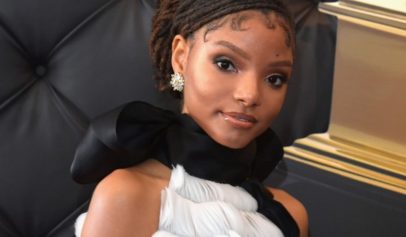The live-action remake of “The Little Mermaid” has been making waves since Disney first announced singer Halle Bailey would be the film’s star.
Many people celebrated having a sister take the lead under the sea, but the decision was also met with backlash from those who believed casting a Black Ariel pushed a “woke” agenda and insulted the animated classic’s authenticity.
The film’s director, Rob Marshall, pushed back against the latter claims. He said Bailey, 23, far surpassed her competition although hundreds of actresses auditioned for the part.
“She immediately set the bar so high that no one surpassed it,” Marshall said in an interview with The Hollywood Reporter. “We saw every ethnicity. There was no agenda to cast a woman of color. It was really just, ‘Let’s find the best Ariel,’ and Halle claimed the role.”

Despite Marshall’s statements and the film’s success in America, the melanin version of Ariel continues to spark debate. THR reported the film performed poorly at the box office in places like China and South Korea due to racism.
Some white fans said nostalgia, not racism prompted their request that Ariel be as closely depicted to her animated character as possible. However, some Black fans called “cap” on those claims. One YouTube reviewer said the public discourse on “race-swapping” Ariel lacks nuance and she can understand both sides of the topic because it’s not as black and white as some make it seem.
Still, other fans said their gripe with the remake stems from something else entirely. The big question those critics asked is, with Bailey cast as Ariel, why wasn’t a Black man cast to play Prince Eric? (The prince is played by English actor Jonah Hauer-King.)
“Y’all mad that the Little Mermaid is Black. I’m mad they kept Eric white,” Bishop Talbert Swan tweeted on May 31. “If they were going to have a Black woman, leave her family, community, and culture to chase a white man, they should’ve had someone with experience, like Candace Owens, play the role.”
Though Swan’s critique was blunt, he isn’t the only one who felt that way. Those that echoed his sentiment said it points to a bigger problem in mainstream media — the lack of representation for healthy and happy black-on-black love, relationships, and families.
Some critics expressed their belief that the trend is strategic and brought up other Disney princesses from the franchise.
“Disney hasn’t done a thing for little black boys. Two black princesses now. Not a single black male, let alone a prince, of any significance,” wrote one person in response to Swan’s statement. “Tiana – Naveen Ariel – Eric Brandy’s Cinderella – The Prince Every white princess ends up with a white prince. Every black princess… no.”
Dr. Umar Johnson also criticized “The Little Mermaid” and “Spider-Man: Across the Spider-Verse,” which secured the top two spots at the U.S. domestic box office the weekend of June 2. In “Spider-Verse,” the potential love interest of the Black and Puerto Rican superhero Miles Morales is white.
“How the hell are you gonna have a Black superhero cartoon for our children and he’s lusting and thirsting over the skim milk in the damn trailer,” Johnson said in a video critiquing the films. “We can’t even have a cartoon with black-on-black love. It’s getting out of control. Little Mermaid, Spider-Man, bunny hopping.”
In response to the backlash to his video, Johnson reiterated his position in a lengthy caption on Instagram.
“The war against the Black family is obvious, even a blind man can see it. These movies are programming our children away from black-on-black love,” Johnson continued. “When we do there’s hardly ever a normal black family, with black children & two black parents.”
He proposed another question many seemed to agree with: “What’s wrong with wanting our children to see a healthy Black family or black-on-black relationship on the cartoon/comic big screen?”
In another video, Johnson said the lack of representation was not Bailey’s fault and his intent was not to “sabotage” the success of “The Little Mermaid” remake. He said he would buy tickets to the movie but would not take his children to see it.
Are Swan, Johnson, and those who echo their point of view correct? Is Hollywood making a strategic effort to marginalize positive representations of the Black nuclear family?
Deliberate or not, it is becoming more likely for viewers to see mixed couples and families in today’s mainstream television and film landscape. At least one ad executive said the shift is intentional in a 2021 interview.
“It’s a conscious decision, and we’re trying to better represent America,” said Mark Jones, president of Jones Advertising in Seattle, Washington.
Tiffany Onyejiaka, a writer and medical student based in Washington, D.C., highlighted in a 2019 article how this rising trend is not reflective of reality.
“Black love exists in a myriad of beautiful renditions, yet the form of Black love that is starting to predominate our television and movie screens often involves a non-Black partner which is incongruent with the realities of Black society,” Onyejiaka wrote.
She cited a 2015 study by the Pew Research Center that revealed that the majority of Black Americans marry within their racial group. While interracial marriage is on the rise, it is still the minority of marriages in the Black community.
According to a summation of U.S. Census data from 2021 by BlackDemographics.com, only 15 percent of Black men and 7 percent of Black women had a non-Black spouse. This means 85 percent of Black men and 93 percent of Black women in the U.S. marry within their race.
This reality sharply contrasts with the trend on our screens. When Black nuclear families are depicted, they are usually rife with harmful racist tropes and stereotypes.
Onyejiaka posits that this phenomenon is an attempt by entertainment industry gatekeepers to maintain the practice of centering whiteness as the standard to aspire to.
“It’s a way of increasing Black representation while still allowing non-Black actors and actresses—particularly white men—to maintain their footholds across the entertainment landscape. White actors and actresses still hold the coveted spot of being the adored love interest in a wider range of movies than ever before,” she wrote.
Add to this the fact that many Black people who marry non-Black partners wed members of other marginalized groups (Native Americans, Hispanics and Asians) and the argument gains further traction.
Just as some white fans said wanting a Caucasian, red-headed Ariel doesn’t make them racist, Black fans asking for more portrayals of happy and healthy black-on-black love doesn’t mean they are demonizing interracial marriage.
Everyone wants representation. Being pro-self doesn’t mean Black people are anti-everyone else.


